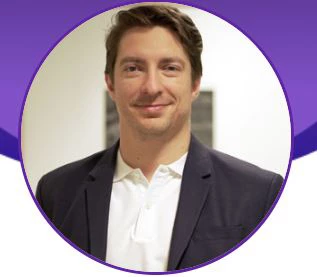 Men making cash transfer payments to women in Freetown, Sierra Leone. Photo © Dominic Chavez/World Bank
Men making cash transfer payments to women in Freetown, Sierra Leone. Photo © Dominic Chavez/World Bank
For West Africa, the past few years have brought more than their fair share of crises ranging from the impact of the COVID-19 pandemic, armed violence, rising food and fuel prices, to international geopolitical turmoil. A number of political coups—such as the current one in Niger—has created a general backsliding of democracy and a closing down of the civil space.
The most recent Global Peace Index report for 2023 found that the average level of global peacefulness deteriorated by 0.42 percent. This was the thirteenth deterioration in peacefulness in the last fifteen years. In addition, many countries are experiencing rising temperatures, drought and flooding that is causing a climate-security risk.
This rise in violence and political instability is linked to increasingly frayed social contracts – the general agreement between citizens and the state on mutual roles and responsibilities. These compounding challenges have further weakened governments’ ability to respond, exacerbated tensions, and eroded trust. In many countries, people are growing more dissatisfied with governments that are failing to deliver basic services, guarantee their safety, and prevent corruption. Repairing frayed social contracts can help diffuse tension, manage expectations, build trust, and ultimately contribute to decreasing conflicts.
How can partners contribute to mending social contracts?
In West Africa, the World Bank has joined forces with partners under the Governance and Institutions Umbrella Program (G&I), to promote the use of a social contract lens in projects to support building social accountability, give voice to citizens, and hold governments accountable, to ensure citizens receive the services they require. Among these partners are the Hewlett Foundation and the MacArthur Foundation.
For the Hewlett Foundation the work centers around advancing greater power of underserved populations. In Senegal and Burkina Faso, the Hewlett Foundation’s Inclusive Governance portfolio supports powerful and effective organizations and coalitions as well as social movements achieving systemic changes to ensure that budget and sectoral policies, processes, and service delivery frameworks are more effective, equitable, transparent, and responsive to the needs of marginalized groups. In Ghana, Hewlett Foundation’s partners sustain local accountability systems to deepen citizen collective action and engagement in enhancing transparency and accountability in governance by tracking misappropriated public funds and strengthening public financial systems such as procurement.
The MacArthur Foundation’s contribution to the G&I Program supports the coordination and implementation of Nigeria's open government partnership priorities contained in the country's third national action plan (NAP) that seeks to strengthen and mainstream transparency, improve citizens' participation in the administration of public resources and increase access to information. Principally, the Foundation's contribution to the G&I Program supports the assessment of the functioning of key PFM management information systems, to deepen and institutionalize fiscal transparency reforms. MacArthur Foundation is focused on strengthening civic voices through support for operationalizing Nigeria's new Permanent Dialogue Mechanism for Citizens engagement, and feedback on governance and service delivery.
Strengthening accountability, trust, and voice through strong partnerships
With the support of its partners, the G&I is channeling assistance on these issues through four grants:
- In Cameroon, analytical work based on social contract assessments is helping to inform policy dialogue, the World Bank’s Country Partnership Framework, and support reform on access to information and engagement with civil society to strengthen public policy outcomes and improve trust between government and citizens.
- In the Sahel, the grant is financing the creation of a multi-stakeholder platform called the Sahel Sounding Board, bringing together civil society, traditional leaders and the government for a range of convening and knowledge sharing events with 180 participants on topics such as service delivery, security expenditure, and decentralization.
- In Nigeria, the program supported work to deepen and institutionalize fiscal transparency reforms and financed analysis and stakeholder engagement aimed at strengthening the link between transparency and accountability.
- At the global level, the G&I is financing the launch of a new global initiative on Coalitions and Collective Action for Reforms (C4R) which will deploy tools to leverage collective action within the Bank and its partners’ country engagements.
Mending frayed social contracts can be an important tool in the toolbox to address current conflicts and prevent new ones. It offers a way to build trust and accountability among citizens and state. With partners playing convening and complementary roles at all angles, a social contract lens can help leverage limited resources and skills, repair deep fractures, and contribute to decreasing conflict.
About the Governance & Institutions Umbrella Program (G&I)
The G&I was established in 2022 with the generous support of the Chandler Foundation, the William and Flora Hewlett Foundation, the MacArthur Foundation, and the UK Government’s Foreign, Commonwealth & Development Office (FCDO) as a new partner. The Program supports World Bank client countries to build capable, efficient, open, inclusive, and accountable institutions and improve public sector performance and institutional reform, increase application of digital and technology solutions in the public sector, and enhance transparency and accountability.
Learn more at: worldbank.org/giup




Join the Conversation